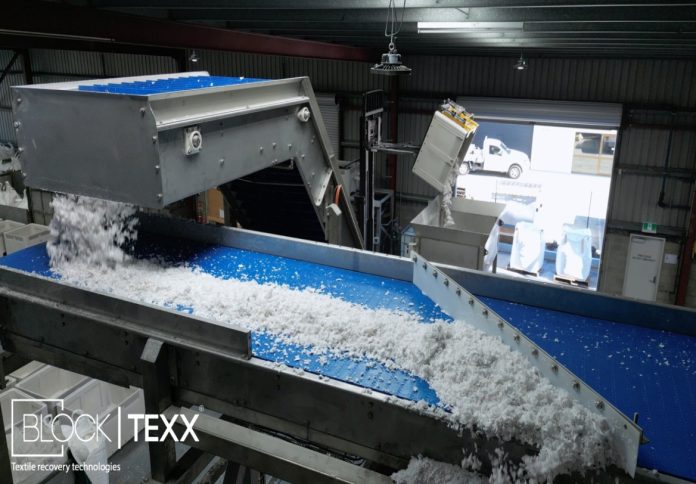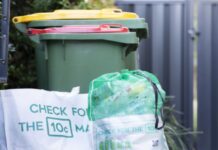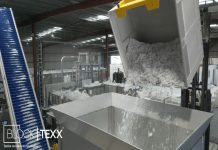
Opal, a prominent player in Australia’s recycling, paper, and packaging industry, has partnered with textile recycling company BlockTexx in a pilot initiative aimed at reducing textile waste from workplace uniforms.
The collaboration involves collecting old and unused uniforms from Opal’s Botany Mill in Sydney for recycling into reusable materials through BlockTexx’s proprietary technology.
A 660-litre container filled with uniforms has already been gathered from team members at the Botany Mill as part of the trial.
These garments will undergo BlockTexx’s recycling process, which breaks down textiles into high-quality fibres that can be repurposed for various applications.
Karen Jones, Environment, Testing and Management Systems Manager at Opal’s Botany Mill, said the initiative demonstrates the important role businesses can play in tackling environmental challenges, particularly those related to textile waste.
“Opal’s Botany Mill is one of Australia’s largest and most advanced cardboard recycling operations, and over the years we’ve implemented processes to support a circular economy and close the loop in our operations,” Jones said.
“By partnering with BlockTexx® to give our uniforms a new life, we are extending our waste reduction and recycling efforts beyond the production line.”
BlockTexx uses a patented process to recover fibres from end-of-life textiles, helping reduce the volume of garments sent to landfill.
Adrian Jones, co-founder of BlockTexx, welcomed the partnership and praised Opal’s proactive approach. “It’s fantastic to see a major manufacturer in the paper and packaging industry taking proactive steps to further reduce its waste and demonstrate leadership in sustainability,” he said.
“This initiative not only helps divert textile waste from landfill but also shows how textile recycling can be an integral part of corporate responsibility.”
Opal said it hopes the pilot program will encourage other organisations to consider similar partnerships to manage uniform and textile waste more sustainably.



















